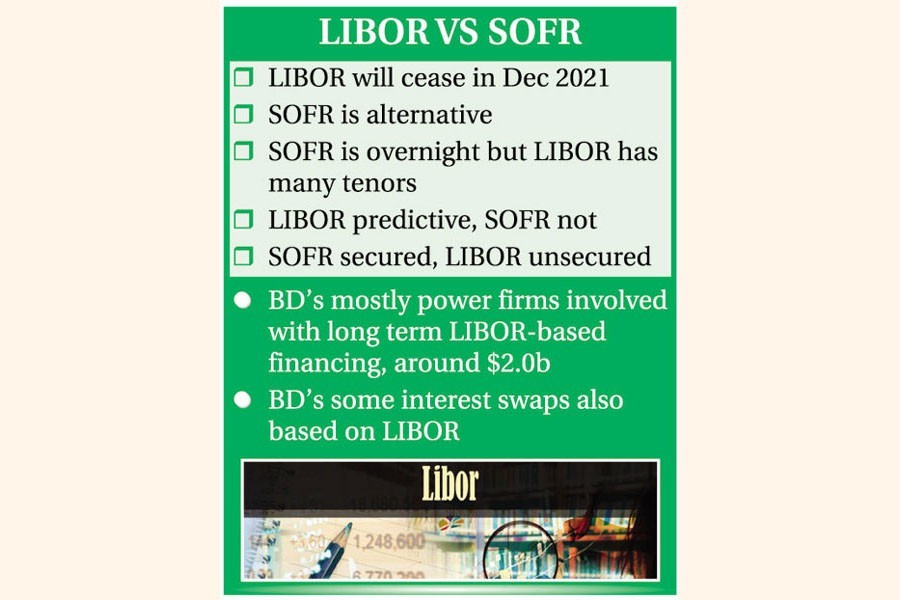The interest rate of the country's many foreign borrowings is likely to go up, as the London Interbank Offered Rate (LIBOR) will cease to be effective in the case of most currencies, including the US dollar, at the end of the current year.
The UK regulator concerned has recently decided to discontinue the publication of LIBOR as some scandals had surfaced involving the LIBOR recently.
The LIBOR is an interest rate average, calculated from estimations submitted by the leading banks in London.
The Financial Conduct Authority (FCA), which oversees the global benchmarks, recently said the publication of LIBOR would come to an end in December 2021.
It means, from January 2022 onwards, financial institutions, including banks, will no longer need to feed daily numbers into LIBOR's calculation.
Local experts told the FE that the situation would raise pressure on the banks and companies that took long-term debts. Long-term borrowings by the companies, interest rate swaps and the Bangladesh Bank's refinancing schemes are based on LIBOR.
They also said Bangladesh has many power projects that took such long-term funds based on LIBOR. The country's long-term borrowings based on LIBOR may stand at few billion US dollars.
"The main challenge is that the long-term rate may surge after phasing out of LIBOR," said Md. Shaheen Iqbal, President of the CFA Society Bangladesh.
Mr. Iqbal noted that the results may be inverse also. However, the short-term funding deals may remain unhurt.
"We should raise engagements with the stakeholders from now on, and identify the deals that may be affected," he opined.
According to many, LIBOR will be replaced by SOFR (secured overnight financing rate), another interbank reference rate.
The Federal Reserve Bank of New York publishes daily rates and volumes. But the rate is based on past transactions, limiting its predictive value or future interest rate.
Besides, LIBOR has many tenures, while SOFR is overnight.
Sk Motiur Rahman, treasury head at the Prime Bank Limited, told the FE: "We do not see challenges for short-term loans, as such borrowings are based on three months to six months, and their interest prediction is possible".
"We should be careful about the long-term funding, as future interest rates cannot be assumed."
"LIBOR had scandals. So, switching over to SOFR will be much more realistic, as it is based on the treasuries," he noted.


